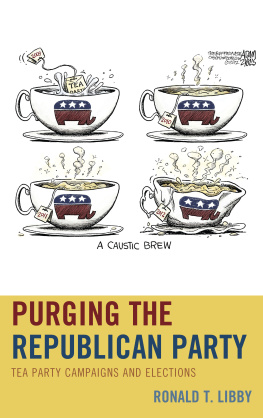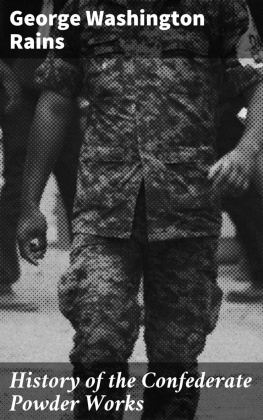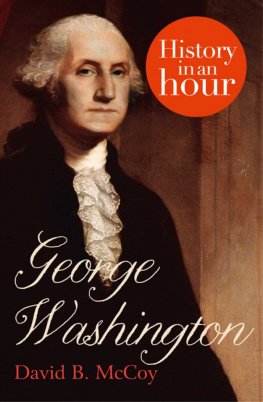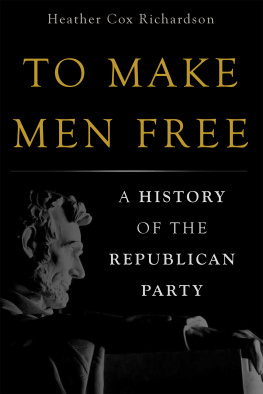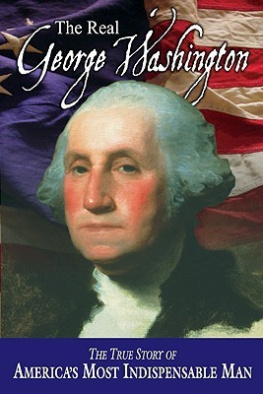[Transcriber's note:
In Memoriam
Michael S. Hart (1947-2011),
Inventor of the e-Book
and
Founder of Project Gutenberg
]
================================= A History of the Republican Party by George Washington Platt =================================
[Frontispiece: Lincoln, Garfield and McKinley.]
A History
OF THE
Republican Party
BY
GEO. W. PLATT
-
"And summon from the shadowy Past,
The forms that once have been."
-
C. J. KREHBIEL & CO., CINCINNATI, O. 1904
Copyright, 1904, by GEO. W. PLATT. All rights reserved.
Inscribed
to the Memory of
the three Martyred Republican Presidents
LINCOLN, GARFIELD, McKINLEY.
PREFACE.
Early in February, 1900, the writer delivered an address before the Stamina Republican League of Cincinnati on "The Origin and Rise of the Republican Party." The interest in the subject shown by the audience and the many words of approbation led to a deeper consideration of the history of the Party, and the address was repeated on a more elaborate plan before many other organizations in Cincinnati and vicinity.
It soon became apparent that the great majority of every audience had very vague recollections of the tragic events which led to the organization of the Party, and of its early history, owing perhaps to the fact that they belonged to a generation that had followed the enactment of those events. It was also clear that those who had lived in the momentous decade before the Civil War were deeply interested and stirred by a new recital of the history of that period, and thus it was suggested that a History of the Republican Party might prove of interest and value.
Like the place of Homer's birth that of the Republican Party is in dispute, but it is believed that the facts herein narrated are supported by the weight of evidence.
It is hoped that this work does not display so much partisanship as to make it uninteresting to members of other political parties in the United States.
GEO. W. PLATT.
Cincinnati, February, 1904.
CONTENTS.
CHAPTER. PAGE I. Formative Causes 5 II. Ancient and Modern Slavery .. 11 III. Beginning of Slavery in the United States .. 22 IV. The Early Federal Government 28 V. The Missouri Compromise .. 42 VI. The Abolitionists .. 51 VII. Compromise of 1850 . 59 VIII. Birth of the Republican Party .. 70 IX. First Republican National Convention . 86 X. The Lincoln-Douglas Debates . 101 XI. Lincoln 112 XII. Reconstruction and the National Debt . 135 XIII. Grant .. 148 XIV. Hayes .. 170 XV. Garfield and Arthur 185 XVI. Blaine . 201 XVII. Harrison .. 213 XVIII. Cleveland's Second Term .. 230 XIX. McKinley .. 244 XX. Roosevelt . 285
LIST OF ILLUSTRATIONS.
PAGE 1. Lincoln, Garfield and McKinley . Frontispiece 2. White House . facing 28 3. Capitol .. " 44 4. Alvan E. Bovay . " 76 5. Schoolhouse at Ripon, Wis .. " 84 6. John C. Fremont " 92 7. Wm. H. Seward .. " 100 8. Lincoln's First Inauguration .. " 124 9. New York Herald, April 15, 1865 " 132 10. Andrew Johnson . " 140 11. Ulysses S. Grant .. " 148 12. Rutherford B. Hayes .. " 180 13. Chester A. Arthur . " 196 14. James G. Blaine " 204 15. Benjamin Harrison . " 213 16. John Sherman " 220 17. Inauguration of Wm. McKinley, March, 1897, " 244 18. Thos. B. Reed .. " 252 19. Second Inauguration of McKinley .. " 260 20. Marcus A. Hanna " 276 21. Theodore Roosevelt " 285
A HISTORY OF THE REPUBLICAN PARTY.
CHAPTER I.
FORMATIVE CAUSES.
"Resolved, That the Constitution confers upon Congress sovereign power over the territories of the United States for their government, and that in the exercise of this power it is both the right and duty of Congress to prohibit in the territories those twin relics of barbarism, polygamy and slavery."
Republican National Platform, 1856.
Near the beginning of Mr. Conway's small volume entitled "Barons of the Potomack and Rappahannock" occurs the sententious remark that "a true history of tobacco would be the history of English and American Liberty." With whatever truth there is in such sweeping statements it may also be said that "a history of Slavery in this country would be the history of the Republican Party." This is distinctly so, at least to the close of the Civil War, for we are to notice that while the party originated in a desire to oppose the extension of slavery, the cause of its origin disappeared in less than ten years after the birth of the organization. But the results of that cause remained for many years, and justified the assertion in the Republican platform of 1860 that "a history of the nation during the last four years has fully established the propriety and necessity of the organization and perpetuation of the Republican Party, and that the causes which called it into existence are permanent in their nature." From its primary position as an opponent of slavery extension, the new party became the champion of abolition, and in the chaos brought on by the Civil War, and in the Reconstruction period which followed, it was kept in power, notwithstanding the disappearance of its direct formative cause, and the justification for its continued existence was found in the urgent necessity of the hour. Gradually but firmly it became a strong State and National Party, solving the many vexed problems which followed the great conflict, restoring public credit, reducing the enormous war debt; and when the slavery question and its direct consequences had been eliminated from national politics, taking up new political ideas and economic policies, for the welfare of the entire country, until now, after half a century of existence, during which time it has written some of the brightest pages of American history, the Republican Party stands out as one of the greatest and most consistent of political parties in all the world's history.
Taking the popular vote as a criterion of permanent growth, the vote for the Republican presidential candidates, beginning with 1,341,264 for Fremont in 1856, reached the maximum of 7,208,244 for McKinley in 1900, and only once (in 1892) during this entire period did the popular vote for the Republican presidential candidate fail to show an increase over the vote of the preceding election.
The events of the momentous decade before the Civil War (during which period the Republican Party was firmly established), the election of Mr. Lincoln, the Civil War and Reconstruction, the story of the national development along commercial and financial lines since that period, present the most interesting and vivid chapters of American history. Throughout its history of fifty years, covering the period just mentioned, the Republican Party has a remarkable record for solid and consistent action, resulting universally in national prosperity and honor, and on the three occasions since its formation (1856, 1884 and 1892), when the voters turned away to listen to the teachings of Democracy, the invariable result has been national disaster and humiliation and a retarding of progress.
The Republican Party was organized in the early months of 1854, and the direct formative causes leading to its establishment were the repeal of the Missouri Compromise and the efforts on the part of the South, under the leadership of that ambitious politician, Stephen A. Douglas (with his specious doctrines of non-intervention on the part of the Government, and popular sovereignty), to force slavery into the Territories of Kansas and Nebraska, which, by the Compromise of 1820, should have been forever dedicated to freedom. By these efforts it was seen that the South was attempting to make slavery a national instead of a sectional institution, and the situation early in 1854 (after the long series of triumphs of the Slave Power) seemed almost hopeless as far as concerned political opposition to these radical measures was concerned. At this time, and, indeed, for many years past, the Democratic Party was firm and united in its support of slavery, and the course of the Whig Party, intimidated by its southern members, and fearful of civil strife, had been one of subserviency to the exacting demands of slavery. The Whig Party had proven itself totally incapable of meeting the great question of the hour, and after the election of 1852 was on the verge of absolute dissolution.


